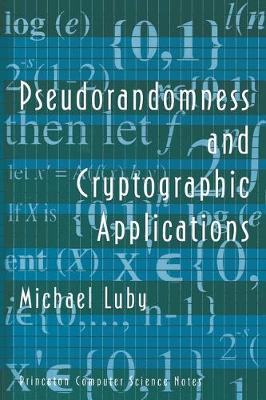Princeton Computer Science Notes
1 primary work
Book 1
A pseudorandom generator is an easy-to-compute function that stretches a short random string into a much longer string that "looks" just like a random string to any efficient adversary. One immediate application of a pseudorandom generator is the construction of a private key cryptosystem that is secure against chosen plaintext attack. There do not seem to be natural examples of functions that are pseudorandom generators. On the other hand, there do seem to be a variety of natural examples of another basic primitive: the one-way function. A function is one-way if it is easy to compute but hard for any efficient adversary to invert on average. The first half of the book shows how to construct a pseudorandom generator from any one-way function. Building on this, the second half of the book shows how to construct other useful cryptographic primitives, such as private key cryptosystems, pseudorandom function generators, pseudorandom permutation generators, digital signature schemes, bit commitment protocols, and zero-knowledge interactive proof systems. The book stresses rigorous definitions and proofs.
